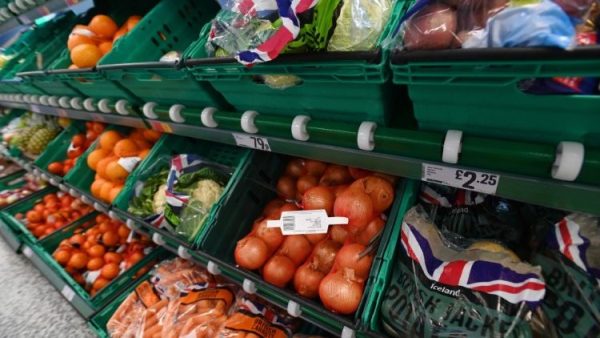Cost of living crisis: The poorest are suffering most
 As the cost of living crisis continues to put a squeeze on people’s purse strings, the CEO of independent think tank Social Justice Ireland, Fr Seàn Healy, S.M.A., says a society will be judged by how it treats its most vulnerable.
As the cost of living crisis continues to put a squeeze on people’s purse strings, the CEO of independent think tank Social Justice Ireland, Fr Seàn Healy, S.M.A., says a society will be judged by how it treats its most vulnerable.
“Global food prices rise to highest-ever levels.” “Consumers face souring energy.” These are some of the headlines people have been reading over the last couple of months, highlighting the dramatic rise in the cost of living.
According to the United Nations, global food prices rose to their highest ever levels in March as a result of Russia’s invasion of Ukraine.
These included the prices of staples including cooking oils, dairy, meat, and cereals.
The UN Food and Agriculture Organisation noted, “The higher price quotations are particularly concerning for countries already struggling with other crises, including conflict, natural disasters, economic conditions or, as it is often the case, some combinations of those.”
Addressing the current situation, the head of the International Fund for Agricultural Development (IFAD) voiced his concern over how the crisis in Ukraine could impact global food security.
IFAD President Gilbert F. Houngbo said, “Forty percent of wheat and corn exports from Ukraine go to the Middle East and Africa, which are already grappling with hunger issues, and where further food shortages or price increases could stoke social unrest.”
As rising costs put a squeeze on finances, in some instances, families are having to choose between heating their homes and essential items.
Factors impacting consumers
Fr Seàn Healy, S.M.A., is Chief Executive of the independent think tank Social Justice Ireland.
Speaking to Vatican Radio, he said factors such as the Covid-19 pandemic, an ongoing climate crisis, and now the geo-economic crisis caused by the Russian invasion of Ukraine have revealed “a very fossil fuel-based economic system that remains fundamentally unsustainable.”
This system is now having a knock-on effect on the lives of millions of people as they struggle to pay bills and feed their families. “Ordinary people are suffering because the cost of food has gone up, the cost of accommodation has gone up, the cost of fuel for their cars has gone up… And their wages have not been keeping pace with this,” Fr Healy said.
Poorest impacted most
According to figures from the European statistics agency, Eurostat, over 75 million people throughout Europe are officially registered as living in poverty. The Social Justice Ireland chief executive pointed out that 20 million of those are children.
“What you’re looking at is a situation where people didn’t have much leeway before the current crisis came along and before the cost of living started to rise. They were already living in poverty or else they were living on the edge of poverty,” he said.
Fr Healy explained that you now have a situation where the model that has been followed for quite some time is broken, and the social contract “between the citizen and the state is also broken.”
That means the State can’t provide the services the citizen expects as part of the social contract.
What is needed, said Fr Healy, is a new social contract and “basically we need to rethink how to organise ourselves in this context."
Helping those in need
Asked what governments can do to alleviate the challenges facing the most vulnerable, he said governments need to ensure as their priority that “those on the margins are protected from the current series of crises that society generally is facing.
“At the end of the day, a society will be judged by how it deals with and treats its most vulnerable”
With the cost of living rising sharply, Fr Healy said he does not see this increase changing any time soon.
“I think we’re in a situation, particularly given the Ukraine-Russia situation, and that has a huge impact on both fuel and because of the Russians providing a lot of the gas and oil that the world needs. But also because both Russia and Ukraine were huge exporters of food.”
The climate issue
He also said he envisaged huge challenges in dealing with the climate situation because of the mammoth effort needed to reduce CO2 emissions.
“Our planet is in serious danger and this has been very clearly stated by Pope Francis in his wonderful encyclical on the environment.”
Fr Healy went on to say that “it’s crystal clear to anybody who looks at the situation what needs to be done, and yet a lot of the governments are not doing it.” The commitments, he added, “are not on the scale of what is required to reverse the process that is happening at the moment in the destruction of the environment.”
Lydia O’Kane, Dublin
Source: vaticannews.va

